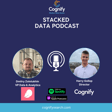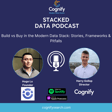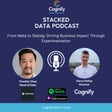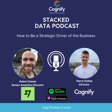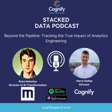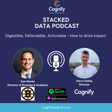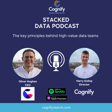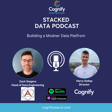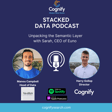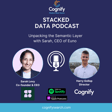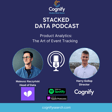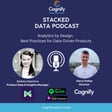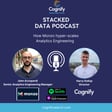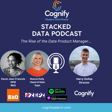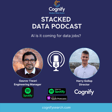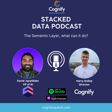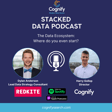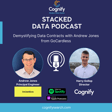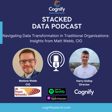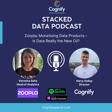
015 - Chaos to Clarity: Navigating Data Modelling Challenges
🎙️ In this week's episode of @the stacked data podcast, we dive deep into the world of data modelling and uncover strategies for success with our special guest Nieves Gorriti the Head of Data and Insights The Dot Collective
Here's a sneak peek into the insightful discussion:
🔍 Introduction to Data Modelling:
What exactly is data modelling, and why is it crucial for effective data management? Nives provides expert insights into this fundamental aspect of the data lifecycle.
🛑 Common Pitfalls and Challenges:
Discover the common pitfalls organisations face in the data modelling process and learn how to avoid them to ensure smooth data operations.
🔑 Importance of Data Modelling:
Uncover the pivotal role of data modelling in driving successful data-driven initiatives within organisations, along with real-life examples demonstrating its impact.
🔧 Guiding Through the Process:
Nives shares invaluable advice and practical tips for enhancing your data modelling skills and provides a step-by-step guide to approaching data modelling successfully.
🔄 Balancing Flexibility and Standardization:
Learn how to strike the right balance between flexibility and standardisation in data modelling to meet business demands while maintaining data integrity.
🤝 Adapting to Evolving Data Environments:
Explore strategies for adapting data modelling strategies to accommodate the ever-evolving data landscape, including new technologies and data sources.
Don't miss out on this conversation! Tune in now to Stacked Data Podcast to gain valuable insights into mastering data modelling for organisational success. 🎧
